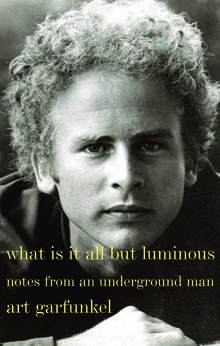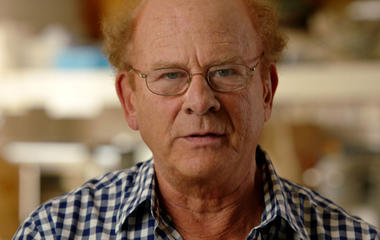
Hey ,
When I left for the open road in 2006, I knew nothing.
I had read some guidebooks and looked over some Internet forums, but back then, there were no travel blogs, Twitter tweets, Facebook fan pages, or the vast amounts of travel information on the Internet you see now. To compensate for this lack of wisdom, I followed my guidebook religiously and got my feet wet with small group tours. I was young, I was inexperienced, and I made a lot of rookie travel mistakes.
Now, if I could sit myself down on the day I left for my world trip, I would give myself — and YOU — these 11 tips:
1. Don't be scared. Fear is a powerful deterrent. Taking the leap into the unknown is scary, but you aren’t the first person to travel the world. You aren’t discovering new continents or exploring uncharted territories. I’d say this to relax you: There is a well-worn travel trail out there and people to help guide you along the way. If millions of people can make their way around the world each year, so can you. You may feel scared and nervous, but you’re just as capable as anyone else.
Read this for more: How to Overcome Your Fears

(Me taking in the scenery on a hike through Patagonia)
2. Don't wait too long. Tomorrow never comes. Too often we try to wait for the perfect time to travel, that time when all the stars align, but that time never comes. You will never have enough money, and there will always be someone's wedding, birthday, etc. etc. Don't wait. When you want to go, just go. The Dutch have a proverb: "He who is outside his door has the hardest part of his journey behind him." Those are words to live by.
Read this for more: There's No "Tomorrow"s in Travel
3. Avoid packing too much. Buy a small bag so you aren’t tempted to pack everything under the sun. You’ll have less to carry. If you truly need something, you can pick it up as you go. Trust me, you won’t need as much gear as you think!
4. Stay connected to your new friends. You meet a lot of people on the road who are all going different ways, and you may find that your paths will cross again. However, it's hard to plan events by email. Did they get it? Will they be there? I don't know! Invest in a cheap phone so you can stay in touch with people better. Plus it comes in handy in an emergency.
5. Go with the flow. Want to stay longer? Leave sooner? Change hotels? If you pre-planned your trip, that's something you can't easily do. When every day is planned out and there are timetables to follow, you get stressed. Very stressed. You rush. And when you plan too much, there’s no room to experience the happy accidents of travel. Plan one or two activities and let the rest of the day happen. It’ll be a more enjoyable and less stressful experience.
6. Take it easy and slow down. It can be tempting to try to see it all. With limited vacation time, we are always trying to squeeze everything in — rushing through 20 cities in 20 days, or 100 countries on our round-the-world trip. In the end, all we have to show for it are photos, stress, and a whirlwind of experiences, but no real knowledge of the places we went. After you try to rush through Australia, you’ll be burnt out and realize you saw everything — but nothing at all. You’ll wish you did it slower. Don’t rush your trip.

(Me wandering through rice patties in Vietnam)
7. Avoid giving banks your hard-earned money. ATM and credit card fees can really add up. For years, I just assumed that it was a cost of traveling. Then I got smart and started looking deeper into it. I haven't paid an ATM or card fee in over five years — and neither should you. You can avoid paying ATM fees by either joining a bank in the global ATM alliance or, if you are American, Charles Schwab (no ATM fees). Don't forget to check a local bank too.
Read this for more: How to Avoid Bank Fees While Traveling
8. Know you can rest your head anywhere. When you start traveling, you often think that you either have to stay in a hotel or a hostel. But there's a lot more out there: you can Couchsurf; rent apartments via Airbnb, Homeaway, or similar sites; stay in monasteries; work and stay on farms; or find small, non-chain budget hotels. In short, there are a lot of options beyond a hostel or a giant chain hotel.
9. Learn to maximize your miles and fly free. When you travel a lot, you fly a lot. I didn't get into the mileage game for a long time, and by not signing up for loyalty programs (airlines, hotels), I missed out getting thousands of free points that I could have used for future free travel. Always sign up for a rewards program. Even if you don't think you will use it, you might in the future, and there's no cost to sign up.

10. Budget well. People get blindsided by stuff they should have anticipated. "I didn't expect to drink so much!" "This place is more expensive than I thought." You hear these comments on the road a lot, and my response is usually "Why? What did you expect to do on the road?" If you do your research well, you will know exactly how much things cost and you can plan your budget accordingly. I know I will eat and drink a lot so I budget accordingly. (Do I go over budget? Sometimes. I make it up on other days.) Do research before you go, keep track of expenses as you go, and watch your money last until the end.
Read this for more: How to Make Your Money Last
11. Don't skip insurance. I've said it before and I'll say it again: this is a huge mistake too many travelers make. They think "I'm young — I won't get sick." Or "I won't be doing dangerous activities." But you never know what can happen on the road, and travel insurance is more than just health insurance. It covers your gear, trip cancellation, delays, and emergencies. It covered my camera when I fell into the sea in Italy, it covered my lost bag from Africa, and it covered my punctured eardrum from diving in Thailand.
*****
So, remember these 11 lessons and you will always travel better, cheaper, safer, and happier.
Until next time, travel often and travel wide.
Nomadic Matt
P.S. If you've found the blog and newsletter helpful, please consider booking your next trip through the links on theresources page. This keeps the content free, community supported, and (most importantly) advertising elsewhere.
P.P.S. If you're looking for more in-depth resources and books,check out one of the books and destination guides I've written on travel.
copied from the newsletter via e-mail.









































